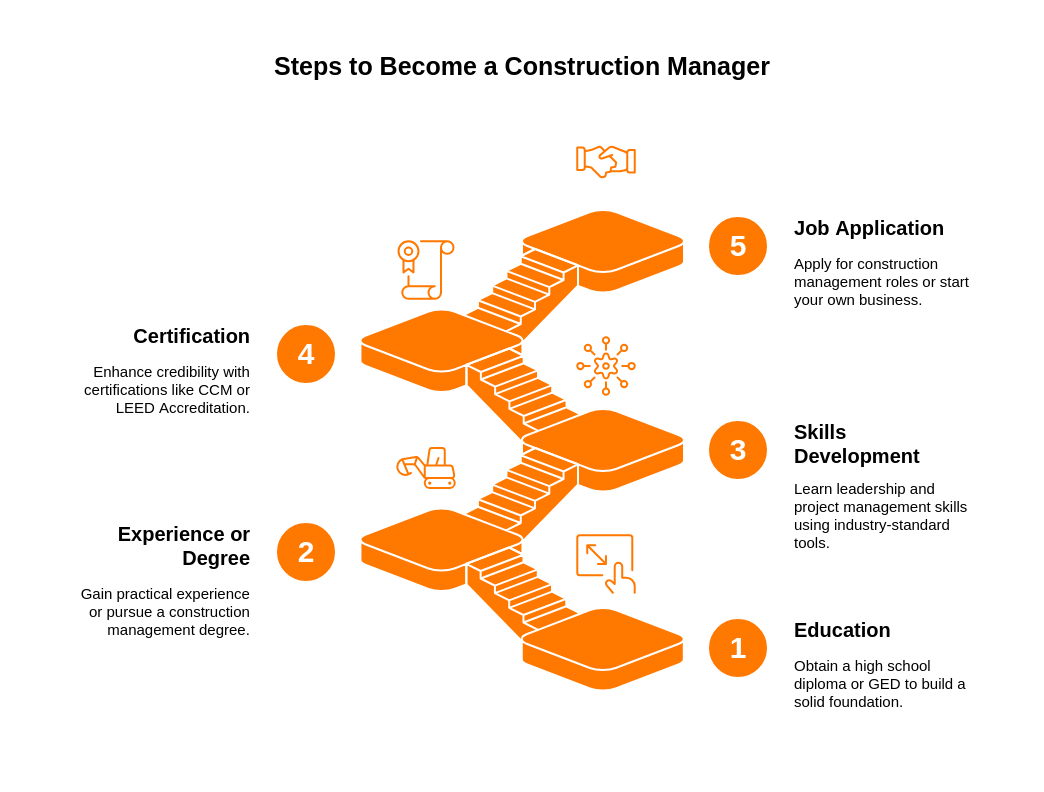How to Become a Construction Manager
Ever drive by a big construction site and wonder, who’s keeping this entire thing on track?
The cranes, crews, budgets, timelines — all moving in perfect coordination?
That’s the work of a construction manager.
They’re the bridge between the hands-on tradespeople and the business side of building. And if you’ve got leadership skills, attention to detail, and love seeing projects come to life — this career’s worth a serious look.
What Does a Construction Manager Do?
Construction managers (often called general contractors or project managers) oversee every phase of a building project — from blueprints to the final inspection. They plan, coordinate, and lead crews to make sure projects are done safely, on time, and within budget.
Daily Responsibilities Include:
- Coordinating subcontractors and scheduling crews
- Reviewing and interpreting plans and blueprints
- Estimating costs and managing budgets
- Ensuring code compliance and job-site safety
- Meeting with clients, architects, and inspectors
Think of it like being a conductor of a massive orchestra — hundreds of moving parts, all working toward the same end result.
Construction managers are in high demand — especially as major infrastructure and housing projects continue to grow nationwide.
How to Become a Construction Manager (5 Steps)
Here’s the roadmap most managers follow to build their careers:
-
Get your high school diploma or GED
You’ll need a solid foundation in math, communication, and business. -
Earn experience or a construction management degree
Many start as carpenters, electricians, or site foremen before moving into management.
Others go straight into a construction management or civil engineering degree (2–4 years).
-
Develop leadership and project management skills
Learn how to handle budgets, schedules, and teams. Tools like MS Project, Primavera, and Procore are industry standards. -
Get certified (optional but powerful)
Certifications boost your credibility and can help land larger projects. Consider:- Certified Construction Manager (CCM) – CMAA
- Associate Constructor (AC) or Certified Professional Constructor (CPC) – AIC
- LEED Accreditation – U.S. Green Building Council
-
Apply for jobs or start your own contracting business
Construction managers work for general contractors, engineering firms, government agencies, and even run their own companies.
Licensing & Certification
Licensing varies by state and the type of projects you manage.
You may need a general contractor license or construction manager license — especially for large-scale projects or public works.
Common Requirements:
- Proof of experience or degree
- Passing state exam on codes and laws
- Proof of liability insurance and bonding
Even if it’s not required in your area, getting certified through CMAA or AIC can make a big difference in pay and career advancement.
Skills That Make a Great Construction Manager
- Strong leadership and communication
- Budgeting and cost estimation
- Problem-solving and adaptability
- Time management
- Safety awareness and code knowledge
The best managers don’t just give orders — they inspire people to build something great together.
Pros & Cons of Construction Management
Pros:
- High earning potential
- Leadership and autonomy
- Every project feels different
- Opportunities for self-employment
Cons:
- Long hours and pressure to meet deadlines
- Responsibility for safety and costs
- Weather and site conditions can delay progress
Start Your Construction Management Career
Construction management is one of the few careers where you can blend business, engineering, and leadership — and see the results of your work every day.
If you’re ready to go from the job site to the driver’s seat, now’s the time to start.
You’re not just managing projects — you’re building the future.

Construction Manager Salary by State

Meet the author: Brad Fishbein is a Florida Licensed Mold Assessor and council-certified Microbial Investigator. He’s the founder of TradeCareerPath.com and has completed over 5,000 mold inspections since 2009. Brad now helps homeowners and tradespeople make smart decisions about mold, licensing, and skilled career paths.
Notice an update we should make?
We strive for accuracy. Contact us here if you see incorrect or outdated info on this page.